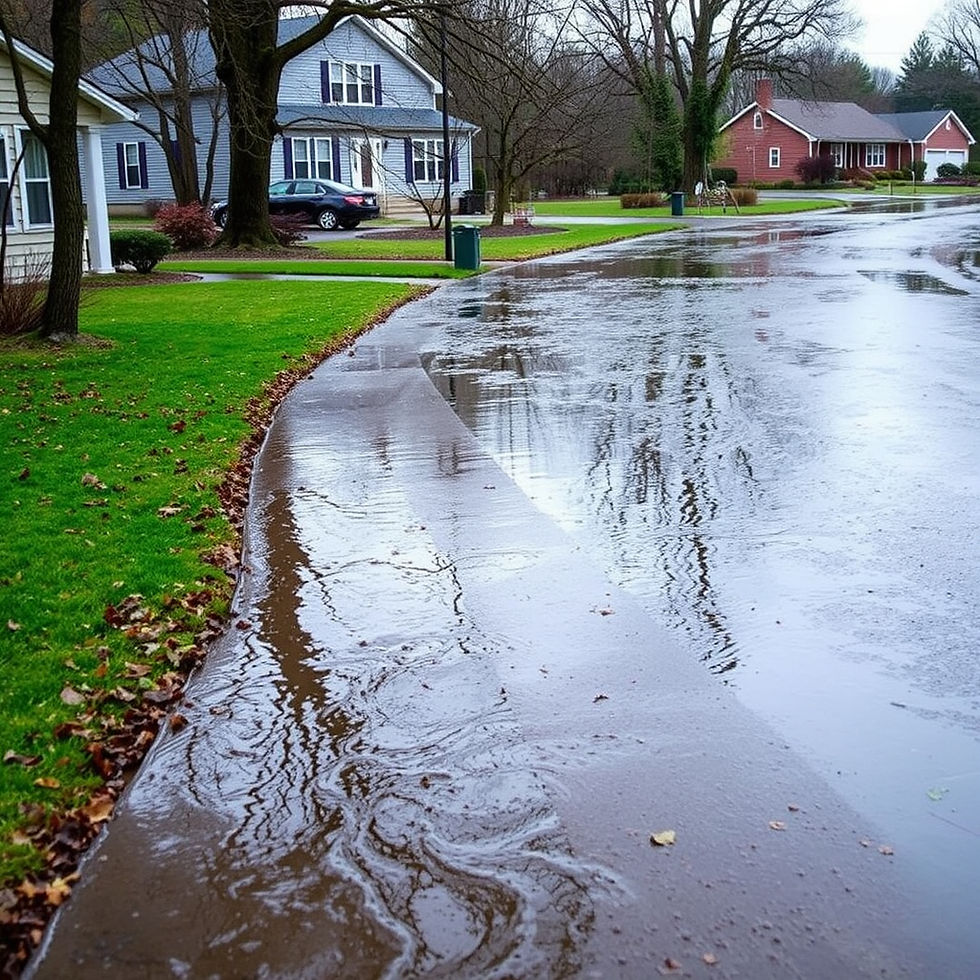Why Does My AC Compressor Shut Off After 2–3 Minutes?
- Jayant Upadhyay
- Jul 23
- 4 min read

Table of Contents
Introduction
How Your AC Compressor Works
Common Reasons Why Your AC Compressor Shuts Off Quickly
Dirty or Clogged Air Filter
Refrigerant Issues
Faulty Thermostat
Overheating Compressor
Electrical Problems
Faulty Capacitor or Relay
Short Cycling
Blocked Condenser Coils
Incorrectly Sized AC Unit
Diagnosing the Problem: Step-by-Step
DIY Fixes vs. Professional Repair
When to Replace Your AC Compressor
Preventive Maintenance Tips
Final Thoughts
FAQs
1. Introduction
If your AC compressor starts but shuts off after just 2–3 minutes, you’re not alone. This frustrating issue is more common than you think. Known as “short cycling,” this problem can reduce your air conditioner's lifespan, increase energy bills, and leave your home feeling uncomfortable. In this guide, we’ll dive deep into why it happens, how to diagnose it, and what to do next.
2. How Your AC Compressor Works
Before we dig into the issue, let’s briefly understand what the compressor does. The compressor is the heart of your AC system. It circulates refrigerant between the evaporator and condenser coils, enabling heat exchange to cool your home. If this vital part shuts off too early, the cooling cycle breaks down.
3. Common Reasons Why Your AC Compressor Shuts Off Quickly
1. Dirty or Clogged Air Filter
How it causes shutdown:Restricted airflow leads to increased pressure and overheating, which triggers the compressor’s safety mechanism.
Signs to look for:
Poor airflow from vents
Frost on evaporator coils
Increased energy consumption
Fix:Replace or clean your air filter every 1–2 months.
2. Refrigerant Issues
Low refrigerant due to leaks or incorrect levels can prevent the compressor from maintaining proper pressure. This leads to short cycling.
Signs to look for:
Hissing sounds (leak)
Ice on refrigerant lines
Low cooling output
Fix:Have a licensed technician detect and seal leaks, then recharge the refrigerant.
3. Faulty Thermostat
What it does:A malfunctioning thermostat can send incorrect signals, causing the compressor to shut off prematurely.
Signs to look for:
Inconsistent room temperatures
Display glitches
Random system cycling
Fix:Replace batteries, recalibrate, or upgrade to a smart thermostat.
4. Overheating Compressor
What causes it:Heat buildup from poor ventilation or dirty condenser coils can cause thermal shutdown.
Signs to look for:
Warm air from vents
Compressor hot to the touch
Sudden stops
Fix:Clean the outdoor unit, remove obstructions, and check fan operation.
5. Electrical Problems
Frequent culprits:Loose wires, faulty relays, or damaged contactors can disrupt the power supply.
Signs to look for:
Burnt smell near the unit
Tripped breaker
Flickering AC operation
Fix:Requires a certified HVAC technician to inspect and correct wiring.
6. Faulty Capacitor or Relay
The capacitor stores the energy needed to start the compressor. If it fails, the compressor won’t sustain power.
Symptoms:
Clicking noises
Compressor struggles to start
Quick shutdown
Fix:Capacitors are inexpensive and quick to replace—call a pro.
7. Short Cycling
Short cycling is when the AC turns on and off too frequently.
Causes of short cycling:
Oversized AC unit
Thermostat placement
Dirty coils
Refrigerant problems
Why it’s bad:It wears out your compressor and raises electricity bills.
8. Blocked Condenser Coils
Coils in the outdoor unit need to release heat efficiently. If they’re dirty or blocked, the system overheats.
Fix:Spray the coils gently with a garden hose or use coil cleaner spray.
9. Incorrectly Sized AC Unit
An oversized AC unit cools the space too quickly, then shuts off—leading to short cycles.
Fix:Get a Manual J Load Calculation done by an HVAC pro to check sizing.
4. Diagnosing the Problem: Step-by-Step
Here’s how to troubleshoot:
Check the air filter – Replace if dirty.
Look at the thermostat – Try lowering it 5°F and see if behavior changes.
Inspect outdoor unit – Remove leaves and debris.
Check for ice – Ice on lines usually means low refrigerant.
Listen for sounds – Clicking or buzzing can indicate capacitor issues.
Measure cycle time – If it’s shutting down in under 5 minutes, that’s abnormal.
5. DIY Fixes vs. Professional Repair
Problem | DIY Possible? | Tools Required |
Replace air filter | ✅ Yes | None |
Thermostat check | ✅ Yes | Screwdriver, batteries |
Clean condenser coils | ✅ Yes | Garden hose, cleaner |
Refrigerant recharge | ❌ No | Licensed technician needed |
Capacitor replacement | ⚠️ Risky | Multimeter, capacitor |
Electrical repair | ❌ No | HVAC electrician |
6. When to Replace Your AC Compressor
Sometimes, replacing the compressor makes more sense than repair.
Consider replacement if:
Compressor is 10–15 years old
Repeated repairs haven’t helped
Repair cost >50% of new unit
Warranty has expired
Cost range:
Compressor replacement: $1,300–$2,500
Full AC replacement: $3,500–$7,000
7. Preventive Maintenance Tips
Replace filters regularly – Every 1–2 months.
Schedule annual tune-ups – Clean coils, check refrigerant.
Install a smart thermostat – More consistent cooling.
Clear area around outdoor unit – At least 2 feet clearance.
Check insulation and ductwork – Prevents overuse.
8. Final Thoughts
An AC compressor shutting off after just a few minutes isn’t something you can ignore. From simple filter issues to complex refrigerant leaks or capacitor failures, there are many reasons behind short cycling. With this guide, you’re now equipped to understand what’s going wrong and how to approach a fix.
9. Frequently Asked Questions (FAQs)
Q: Is it safe to run the AC if the compressor keeps shutting off?
A: No. It increases energy costs and can damage your compressor permanently.
Q: Can I replace the AC compressor myself?
A: No. It requires refrigerant handling and electrical knowledge. Hire a licensed HVAC technician.
Q: How much does it cost to fix short cycling?
A: Minor issues like filters may cost $10–$50. Major repairs like refrigerant recharge can range from $150 to $600+.
Q: Can thermostat placement cause this issue?
A: Yes. If it’s in direct sunlight or near vents, it can trigger early shutdown.



Comments